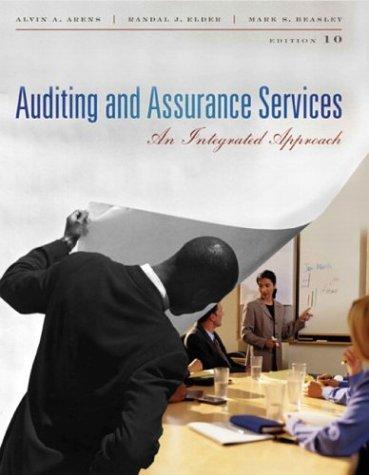Question
13. A company purchased inventory for $73,000 from a vendor on account, FOB shipping point, with terms of 4/10, n/30. The company paid the shipper
13. A company purchased inventory for $73,000 from a vendor on account, FOB shipping point, with terms of 4/10, n/30. The company paid the shipper $1,500 cash for freight in. The company paid the vendor nine days after the sale. If there was no beginning inventory, the cost of inventory would be ________. (Assume a perpetual inventory system.) A. $71,580 B. $74,500 C. $68,580 D. $71,500
14. Quality Jewelers uses the perpetual inventory system. On April 2, Quality sold merchandise for $60,000 to a customer on account with terms of 2/15, n/30. The allowances and returns on this sale amounted to $10,000. The cost of goods sold was $23,000. On April 20, Quality received payment from the customer. Calculate the amount of gross profit. A. $50,000 B. $23,000 C. $27,000 D. $25,800
15. Which of the following accounting elements does the matching principle help to match? A. revenues and liabilities B. expenses and assets C. expenses and revenues D. expenses and liabilities
16. Unearned Revenue is classified as a(n) ________ account. A. liability B. asset C. revenue D. Equity
17. Ted's Used Cars uses the specific identification method of costing inventory. During March, Ted purchased three cars for $8,000, $10,000, and $13,000, respectively. During March, two cars are sold for $11,000 each. Ted determines that at March 31, the $13,000 car is still on hand. What is Teds gross profit for March? A. $3,000. B. $4,000. C. $1,000. D. $9,000.
18. Prepaid insurance is classified as a(n) ________ account. A. liability B. asset C. revenue D. Equity
19. The following contains information from the records of XYZ Company. XYZ Company Selected Financial Information December 31, 2017 Current Assets $90,000 Current Liabilities 30,000 Long-Term Assets 95,000 Long-Term Liabilities 65,000 Total Revenues 50,000 Total Expenses 37,000 Calculate the current ratio. (Round your answer to two decimals.) A. 1.46 B. 3.00 C. 0.64 D. 2.28
20. Which of the following statements is correct with respect to inventories? A. The FIFO method assumes that the costs of the earliest goods acquired are the last to be sold. B. It is generally good business management to sell the most recently acquired goods first. C. Under FIFO, the ending inventory is based on the latest units purchased. D. FIFO seldom coincides with the actual physical flow of inventory.
Step by Step Solution
There are 3 Steps involved in it
Step: 1

Get Instant Access to Expert-Tailored Solutions
See step-by-step solutions with expert insights and AI powered tools for academic success
Step: 2

Step: 3

Ace Your Homework with AI
Get the answers you need in no time with our AI-driven, step-by-step assistance
Get Started


